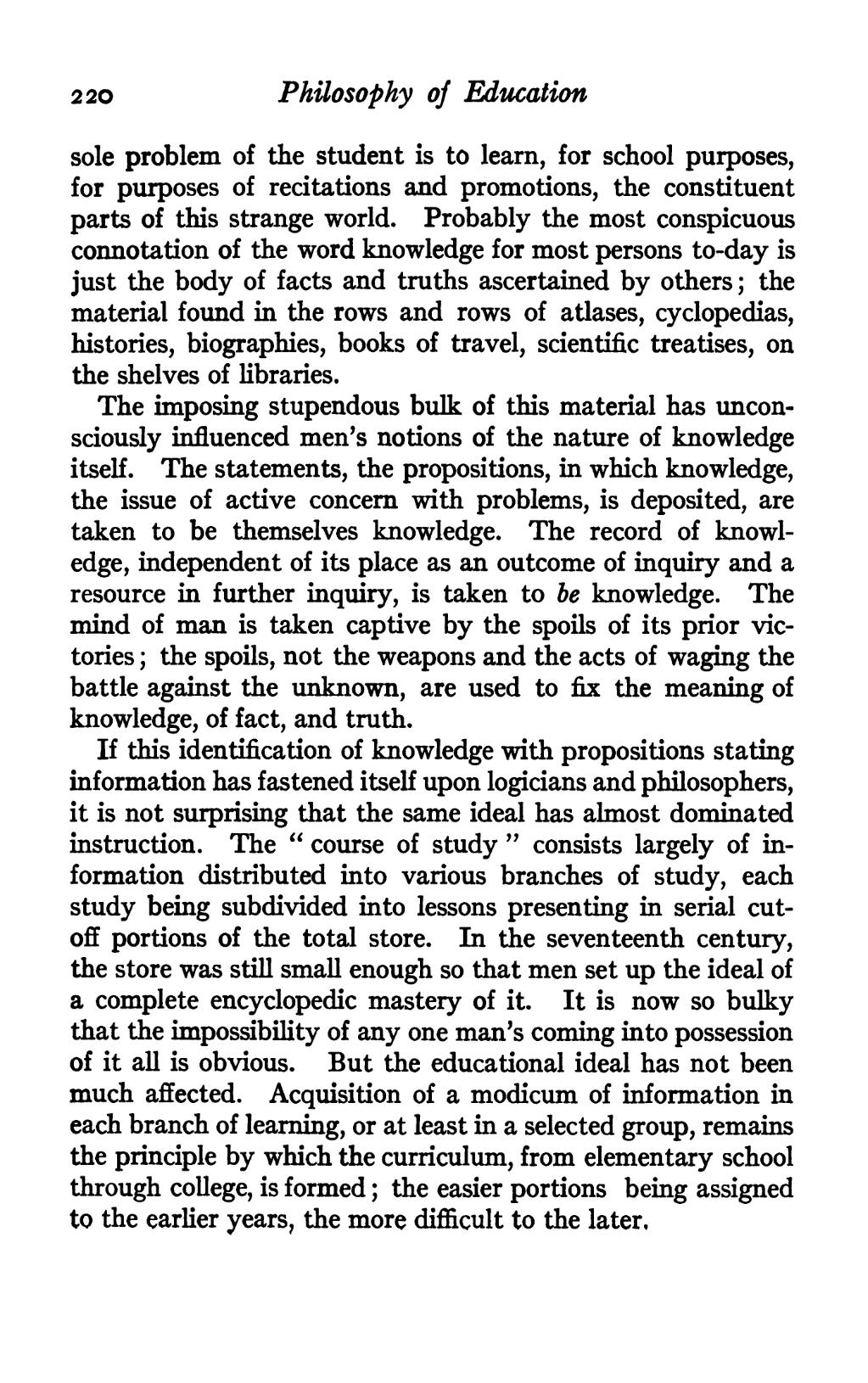sole problem of the student is to learn, for school purposes, for purposes of recitations and promotions, the constituent parts of this strange world. Probably the most conspicuous connotation of the word knowledge for most persons to-day is just the body of facts and truths ascertained by others; the material found in the rows and rows of atlases, cyclopedias, histories, biographies, books of travel, scientific treatises, on the shelves of libraries.
The imposing stupendous bulk of this material has unconsciously influenced men's notions of the nature of knowledge itself. The statements, the propositions, in which knowledge, the issue of active concern with problems, is deposited, are taken to be themselves knowledge. The record of knowledge, independent of its place as an outcome of inquiry and a resource in further inquiry, is taken to be knowledge. The mind of man is taken captive by the spoils of its prior victories; the spoils, not the weapons and the acts of waging the battle against the unknown, are used to fix the meaning of knowledge, of fact, and truth.
If this identification of knowledge with propositions stating information has fastened itself upon logicians and philosophers, it is not surprising that the same ideal has almost dominated instruction. The "course of study" consists largely of information distributed into various branches of study, each study being subdivided into lessons presenting in serial cut-off portions of the total store. In the seventeenth century, the store was still small enough so that men set up the ideal of a complete encyclopedic mastery of it. It is now so bulky that the impossibility of any one man's coming into possession of it all is obvious. But the educational ideal has not been much affected. Acquisition of a modicum of information in each branch of learning, or at least in a selected group, remains the principle by which the curriculum, from elementary school through college, is formed; the easier portions being assigned to the earlier years, the more difficult to the later.

